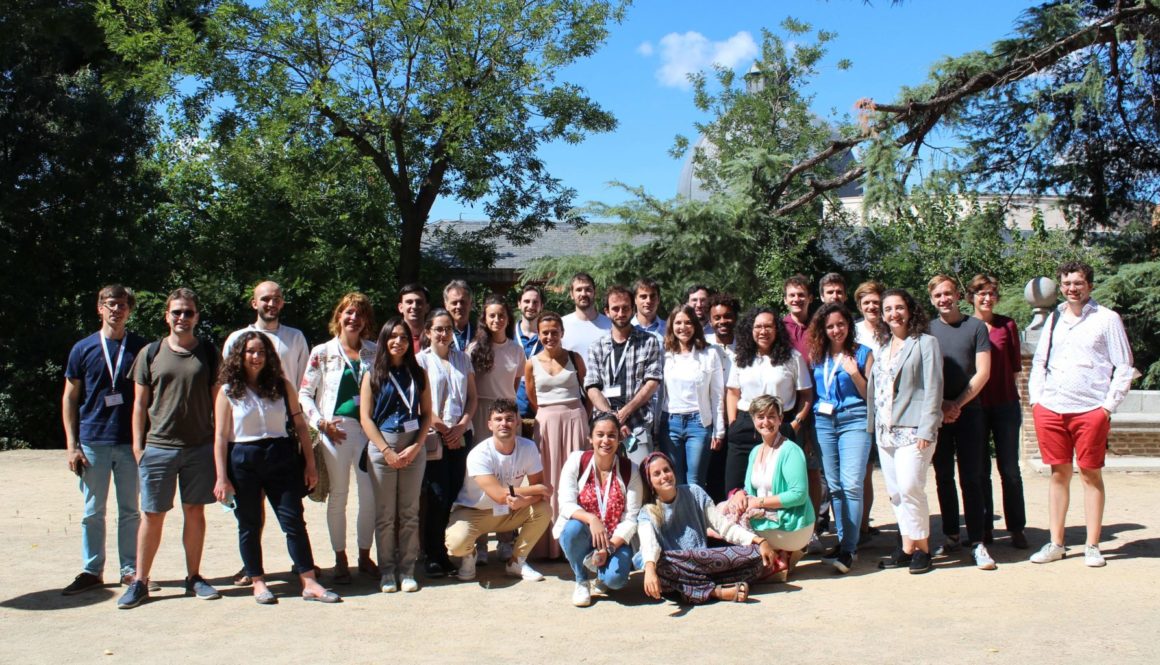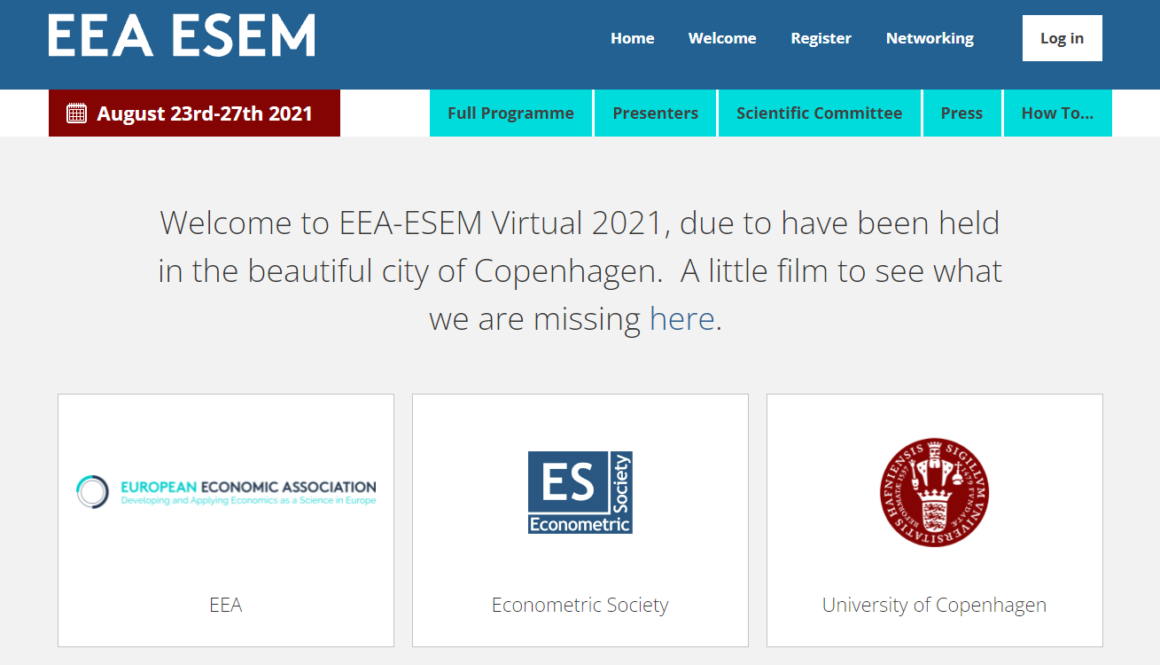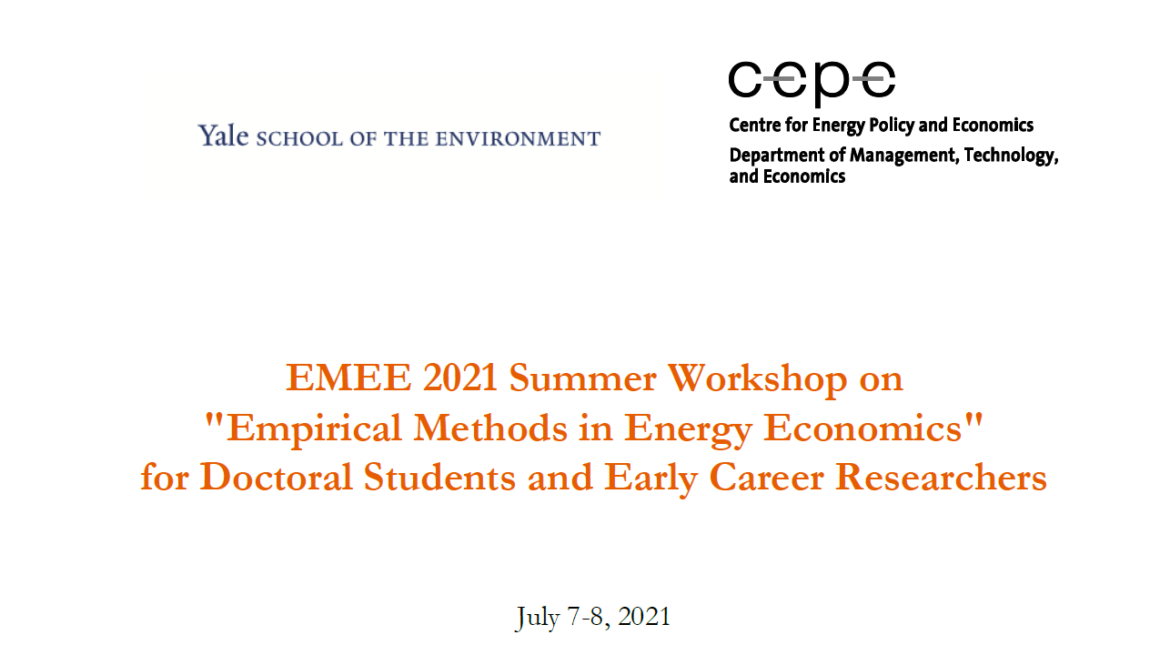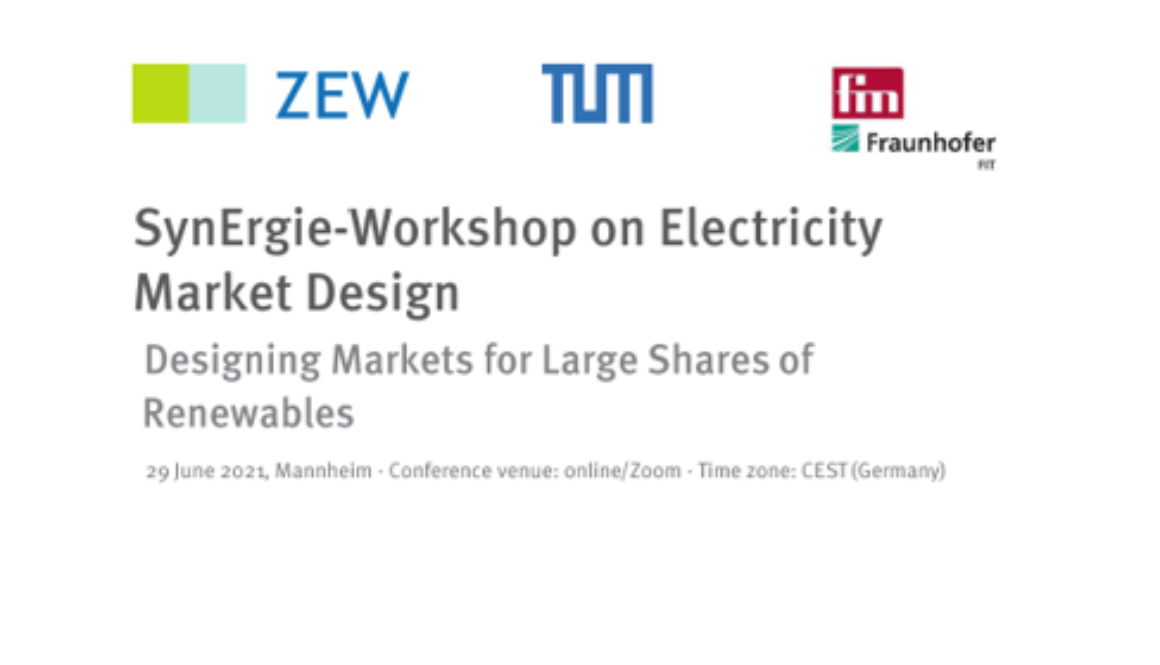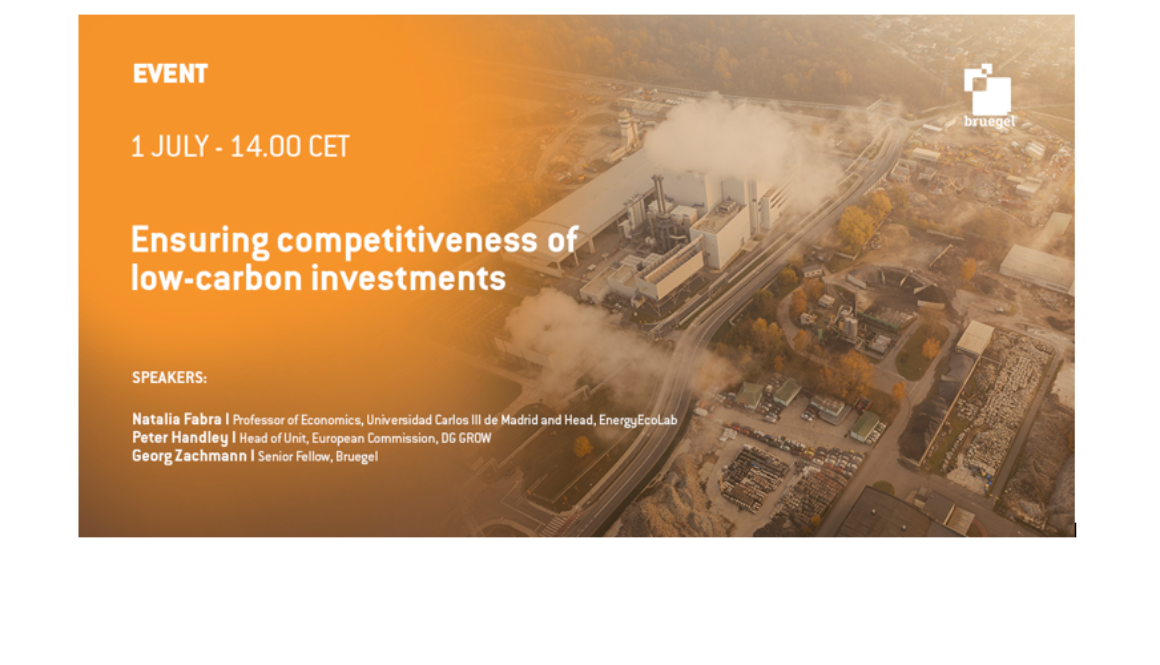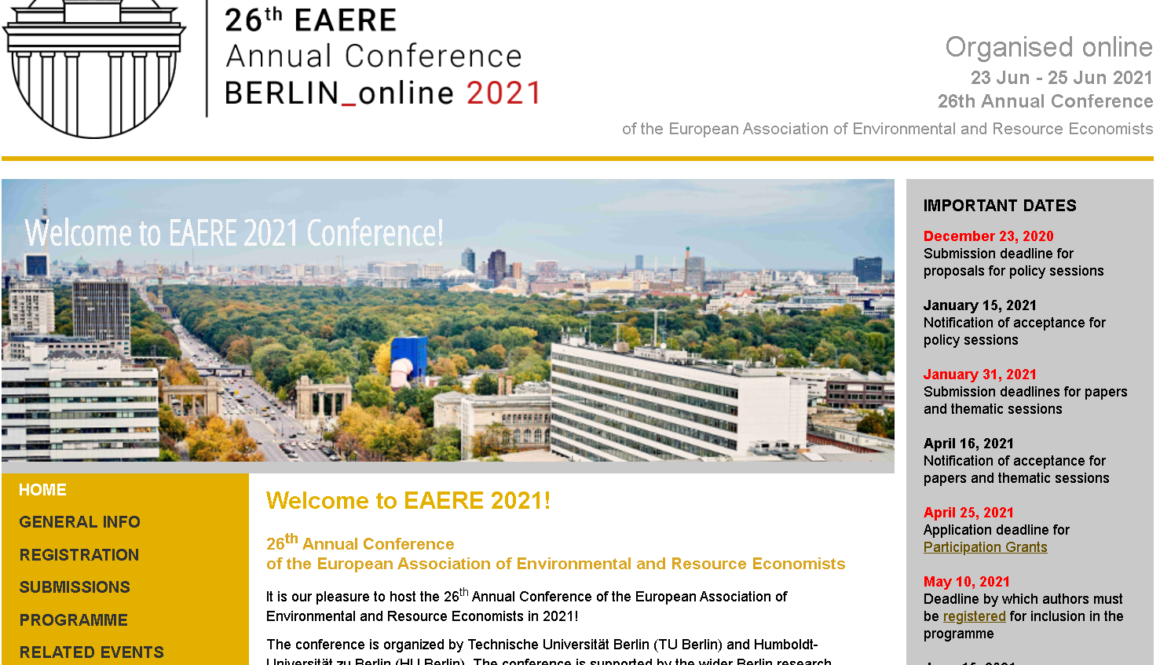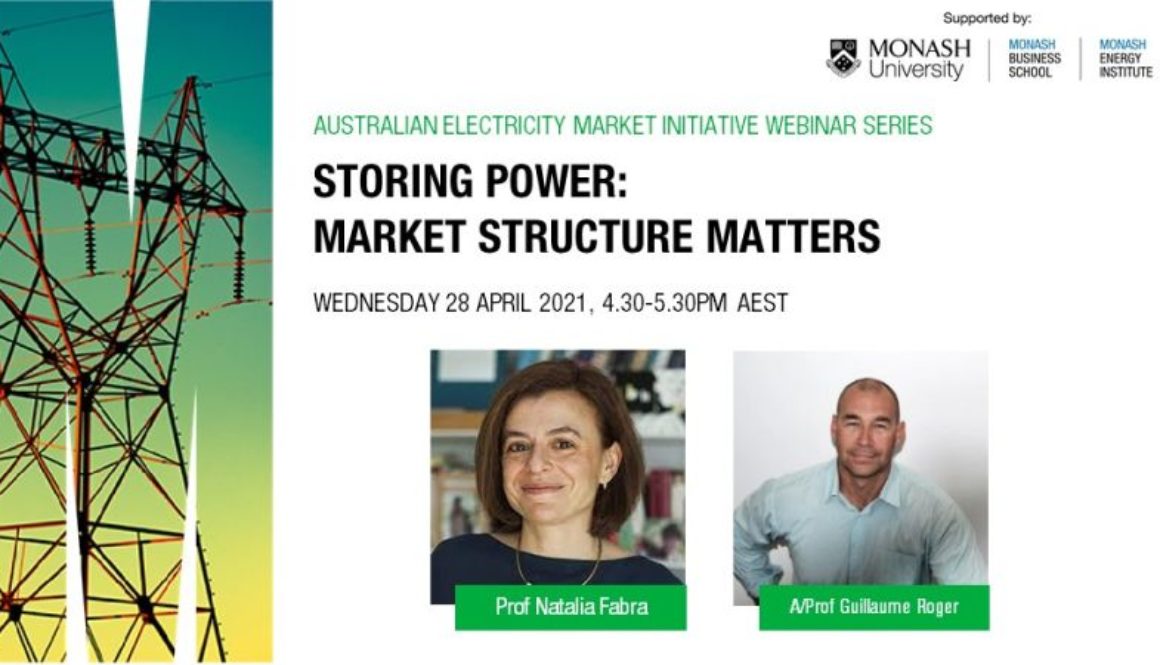We started to work on our ERC project, ELECTRIC CHALLENGES, 30 months ago. Time flies, but we have managed to make substantial progress. Here is a summary!
Around the world, governments are increasingly committed to fighting climate change through more ambitious environmental policies. Notably, the European Union has recently announced its commitment to become carbon neutral by 2050 through a new set of policies known as the European Green Deal. Focusing on the power sector, the ERC Project ELECTRIC CHALLENGES aims to explore the market design and policy issues that arise in this context. Using sound theoretical, empirical, and simulation tools, the final objective of the project is to contribute to the design of those policies capable of achieving the energy transition at least cost.
The project’s objectives can be divided into three broad areas: the role of consumers’ demand; the impact of renewables on electricity markets; and the design of policies towards the deployment of the needed investments.
First, we seek to understand the strength of pricing incentives to incentivise a more active role of electricity consumers. This issue is key for the deployment of renewable energies, whose availability is linked to the changing weather conditions. Consumers’ response to price changes would allow transferring demand from periods with low to high renewable availability, leading to better use of the renewable resources and to a reduction in the need for conventional backup capacity. As many countries around the world are devising new electricity pricing schemes, it is paramount to understand whether facing consumers with time-varying prices is sufficient to achieve such goals.
Second, while the objective is that power markets will become carbon-free in two decades, it is not clear how such markets will perform. This issue is critical to understand: whether final consumers will benefit from the energy transition and whether electricity markets provide enough incentives for firms to invest in renewables and storage. Our project seeks to provide key insights into these issues.
Third, beyond the current market arrangements, we seek to identify the best policies to promote investment in renewables and storage. Taking into account firms’ strategic behaviour is important to understand whether the market structure would affect the effectiveness of such policies.
During the first 30 months of the project, we have made progress in all three areas of the project. Regarding the first, we have gathered a large set of Spanish households’ hourly electricity demand data. Since 2015, all Spanish households pay, by default, tariffs that reflect the hourly changes in the wholesale costs of producing electricity. Hence, the experience in Spain provides a unique opportunity to test whether pricing incentives are enough to trigger a more active demand response. Analysis in this area has led to two papers: “Estimating the Elasticity to Real Time Pricing: Evidence from the Spanish Electricity Market”, with Rapson, D. Reguant, M. and J. Wang (forthcoming at the American Economic Review Papers & Proceedings) and “The Distributional Impacts of Real-Time Pricing” with Cahana, M., Reguant, M. and J. Wang.
Evidence of the weak effects of dynamic pricing led us to consider the effects of another major policy aimed at facilitating the renewables rollout: the use of storage facilities. This has led to the article “Storing Power: Market Structure Matters”, with D. Andrés-Cerezo, which includes both a theoretical model as well as a simulation analysis on the incentives to invest in and operate storage facilities. We find that market power in storage and generation distorts their optimal use, giving rise to underinvestment.
Regarding the second area of research, we have completed the working paper “Auctions with privately known capacities” (with Gerard Llobet). In this work, we build a model of competition in renewables-dominated wholesale markets for electricity. Competition-wise, there are two key differences between conventional and renewable technologies. First, the marginal cost of conventional power plants depends on their efficiency rate and on the price at which they buy fossil fuel. In contrast, the marginal cost of renewable generation is essentially zero. Second, the capacity of conventional power plants is well known, as they tend to be available at all times. In contrast, the availability of renewable plants is uncertain and intermittent. Hence, the move from fossil-fuel generation towards renewable sources will imply a change in the competitive paradigm, towards one in which marginal costs are known (and essentially zero) but firms’ available capacities are private information. Under this new paradigm, our paper shows that renewables mitigate market power as compared to conventional resources. However, renewables will not in general make electricity markets immune to market power and will lead to price volatility. The conclusion is that deploying renewables without further market design changes will not be enough to achieve efficient outcomes. Regulators will have to rely on other market designs if they aim at fully eliminating market power.
We have also completed a second working paper, “Market Power and Price Exposure: Learning from Changes in Renewables Regulation.” We demonstrate that the way regulators pay for renewables output is a key determinant of market performance. In particular, both theoretically as well as empirically, we explore the market impacts of two regulatory changes that took place in Spain in 2013-2014. We show that paying renewables according to fixed prices (as opposed to paying them at market prices plus a premium) mitigated market power, leading to both greater efficiency and higher consumer surplus. Beyond electricity markets, these results suggest that addressing market power directly (rather than indirectly through arbitrage) induces more efficient outcomes.
Regarding the third area, we have completed the paper “Technology neutral versus technology-specific procurement” (with Juan Pablo Montero), in which we analyse the design of policy instruments for procuring renewable capacity. In particular, we compare the use of technology-neutral auctions (in which all technologies are allowed to compete) versus technology-specific auctions. We also assess the use of quantity instruments (such as auctions) versus price instruments (such as tariffs). We show that these choices have fundamental impacts on technology choices and the costs for consumers of procuring the new investments. The implications of these results apply to all procurement settings in which goods or services can be provided with multiple technologies.
The advent of the COVID pandemic has also pushed us to analyse further project-related questions. In particular, in “Degrowth versus Decoupling: competing strategies for carbon abatement?” (with A. Lacuesta, and M. Souza), we compare two alternative strategies for reducing emissions through the lens of the natural experiment brought about by the pandemic: “degrowth” versus the “decoupling”. We find that the latter gives rise to several orders of magnitude lower costs of carbon abatement.
Our work so far has allowed us to interact with energy and environmental economists worldwide. We expect that these interactions will lead to further collaborations in the figure. We have also had the chance to interact with several policymakers and practitioners’ forums in which we have shared the main results of our research.

